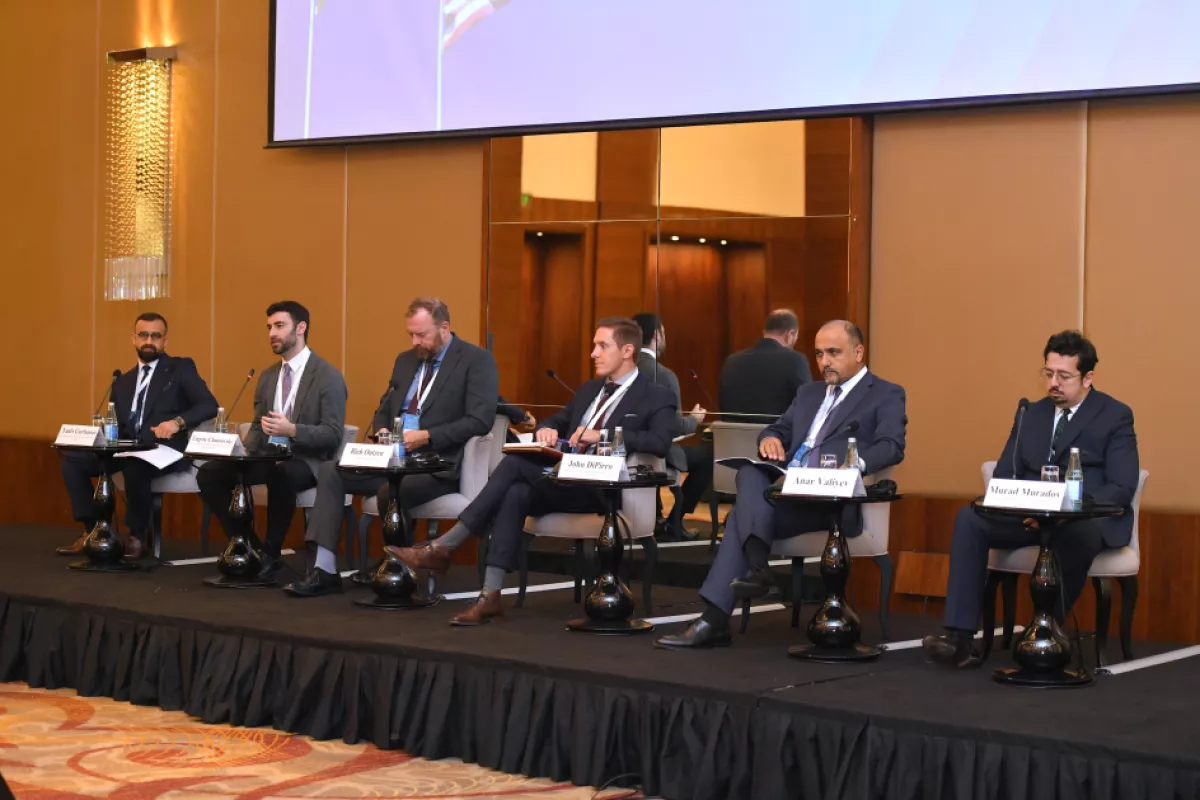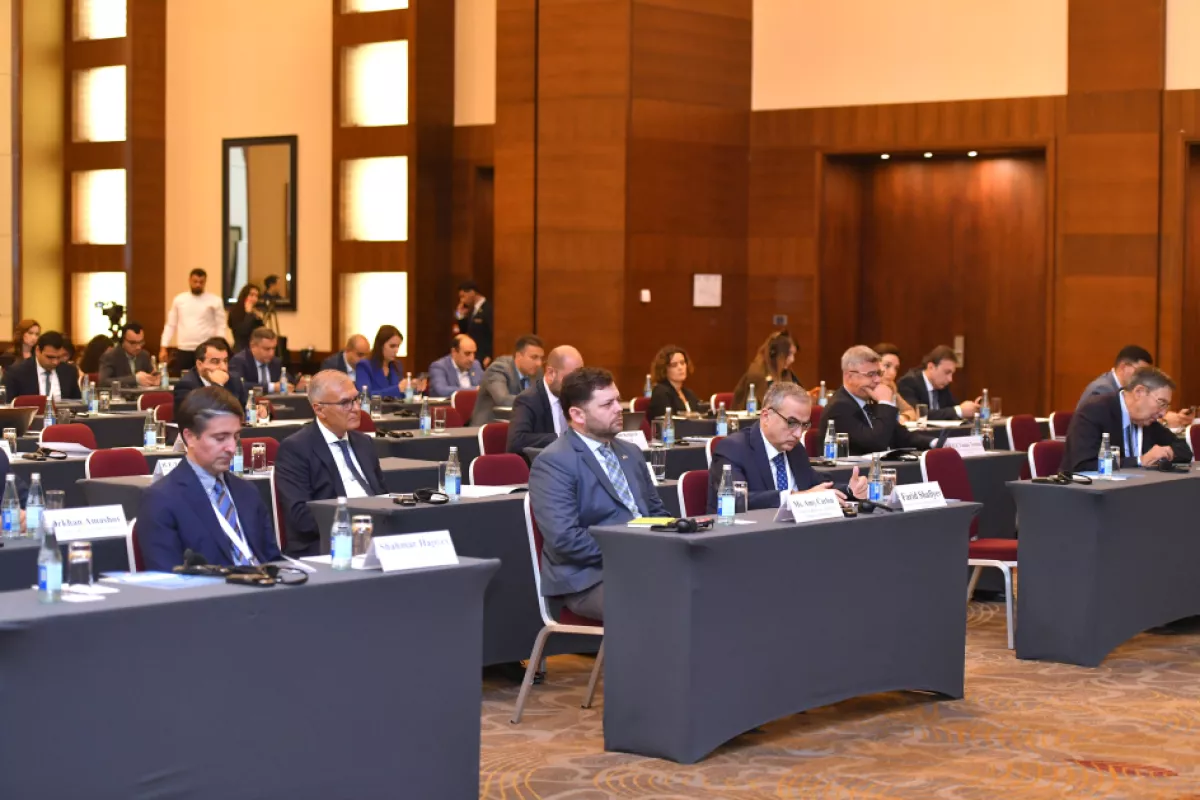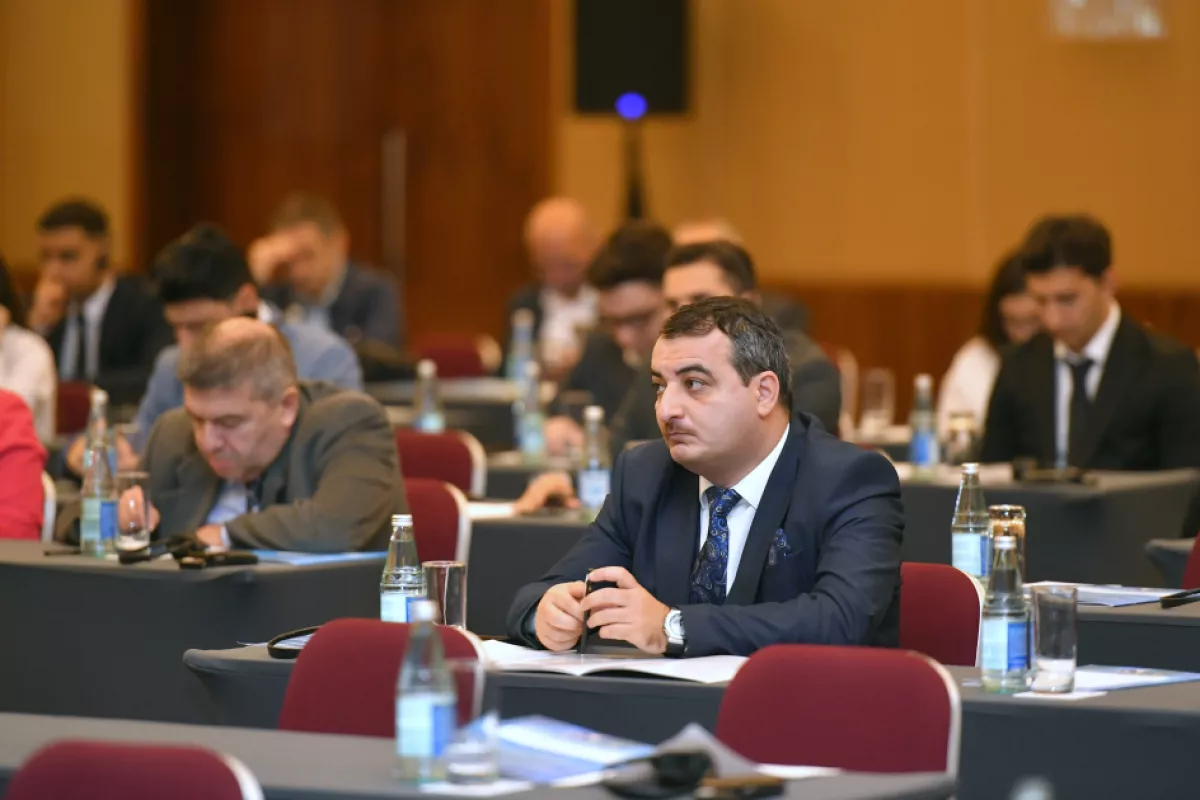Baku discusses Azerbaijan–Armenia peace process after Washington summit PHOTO
On November 18, a panel discussion titled “The Azerbaijan–Armenia Peace Process After the Washington Summit” was held in Baku as part of the inaugural Azerbaijan–US Think Tank Forum, organised by the Centre of Analysis of International Relations (AIR Centre).
The session—moderated by Yunis Gurbanov, Senior Advisor at the AIR Centre—examined the impact of recent geopolitical shifts on the balance of power in the South Caucasus and neighbouring regions, Caliber.Az reports per local media.
The discussion also addressed how the outcomes of the Washington summit influence the normalisation of relations between Azerbaijan and Armenia.
Speaking at the session, Eugene Chausovsky, Director for Analytical Development and Training at the New Lines Institute, noted that it is essential to consider the geopolitical context, as not only regional but also global powers have an interest in the peace process between Azerbaijan and Armenia. He said the strategic importance of the South Caucasus has grown in recent years, with Azerbaijan becoming one of the leading actors in this process. The changes taking place in the region—particularly the new realities that emerged after the war—are key factors shaping the direction of the peace efforts.
According to him, the “Trump Route” (the Zangezur Corridor) and the development of the energy sector are among the important initiatives supported by the Trump administration. This is not only an expansion of economic cooperation but also a strategic project that strengthens energy security across Eurasia. Azerbaijan, as a crucial link in this route, plays a central role in logistics cooperation among regional countries. The project is also significant in terms of diversifying energy resources.
“Although security issues are not as dynamic as other areas, establishing lasting peace is a key precondition for progress in this sphere. Once peace is established, economic relations will deepen, trade flows will expand, and opportunities for cooperation among the region’s countries will become more tangible. As both countries benefit from this process, others in the region will also stand to gain. Azerbaijan has a particular role in this context. The country has proven itself to be a reliable partner in the energy, transport and diplomatic fields,” the director stressed.
According to Rich Outzen, Senior Fellow and Non-Resident Geopolitical Analyst at the Atlantic Council, the results achieved by US President Donald Trump in a short period are truly unique. His unconventional approach, distinctive decision-making style and pragmatism—based on a structured balance of power—have led to tangible changes at the regional level and have given momentum to the processes being discussed today.
Emphasising that the strengthening of relations between Azerbaijan and Central Asia is unsurprising, he added: “Azerbaijan has played an important role in ensuring stability in the region. And I believe the peace process between Azerbaijan and Armenia will advance more quickly. This is because the Trump administration’s approach to these issues differs somewhat from that of previous U.S. governments.
The administration is taking a more pragmatic and balanced position, prioritising the principle of respecting the sovereignty and territorial integrity of the countries in the region. The Washington summit was a logical continuation of this approach and is seen as marking an important stage in Azerbaijani-Armenian relations – the culmination of negotiations. This can be regarded as the result of many years of diplomatic efforts.”
According to John DiPietro, Senior Research Fellow for Eurasia at the Central Asia–Caucasus Institute (CACI), we are currently witnessing numerous significant geopolitical shifts. The South Caucasus plays the role of a strategic bridge between Central Asia and Europe. He also noted: “A stable and effective South Caucasus serves U.S. interests. I view this region as a kind of architecture. Such regional architecture is essential for the full realisation of the Middle Corridor for the United States, Europe and other partners. If one analyses this process, it becomes clear that, in order to build and maintain the resilience of this architecture, the TRIPP route must first be developed. The development of this route requires political stability in Armenia.”
According to Anar Veliyev, Associate Professor and Adviser to the Vice-Rector for Academic Affairs at ADA University, Azerbaijan’s location at the heart of the Middle Corridor provides the country with the opportunity to participate more actively in regional logistics and economic projects. At the same time, political processes in the region and the consequences of ongoing conflicts remain factors that could affect plans for the future.
Murad Muradov, Deputy Director of the Topchubashov Centre, noted that in our new world, previous approaches are no longer effective, as global realities and geopolitical challenges require new strategies and different perspectives. Models of the past will not work in today’s dynamic and complex world. In this regard, the Washington summit carries particular significance. It is, in itself, an example of major success and progress.
He believes that the summit created strategic opportunities for all three countries – Azerbaijan, Armenia and the United States: “I think that once peace is established between Azerbaijan and Armenia, stability will be ensured in the region and, as a result, there will be an opportunity to attract foreign investors more broadly to both countries. There are already real projects that could be implemented, and these projects have the potential to expand economic cooperation, accelerate infrastructure development and strengthen regional integration,” he stressed.
The session continued with discussions on this topic.
By Aghakazim Guliyev











